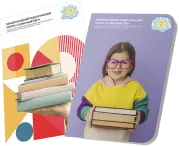INTERCONNECTION OF INTERNET DEPENDENCE AND ACADEMIC SUCCESSFULNESS OF PUPILS OF TEENAGERS
Kroshakova Anna Anatolyevna
Fourth-years student of Psychology Department
Belgorod State National Research University, Belgorod, Russia
Galutskikh Irina Viktorovna
Fourth-years student of Psychology Department
Belgorod State National Research University, Belgorod, Russia
Annotation: Today new psychological problem is revealing. Internet addiction, especially in adolescents, spreading widely and became a huge problem. In this paper, its negative influence on academic performancе.
Key words: academic performancе, internet-addiction, adolescents.
The Internet today has entangled almost the whole world, although it appeared relatively recently. Purchases are made through the Internet, communication takes place, any information we are interested in is found, sexual and game addictions and many other things are realized. But it is no longer possible to consider this process exclusively from the perspective of a uniquely positive direction of technological progress. Users do not even notice how they drop out of real life and lose a lot of time. And the most susceptible to the negative impact of the Internet, of course, are schoolchildren, whose educational activities are leading.
Internet addiction is defined as a mental disorder characterized by an obsessive desire to connect to the Internet and a painful inability to disconnect from the Internet on time and is not the norm. So, in 2013, experts from the International Community of Psychologists and Psychiatrists officially announced Internet addiction to mental illness and added it to the international encyclopedia “Diagnostic and Statistical Manual of Mental Disorders”.
C. Young [3] believes that the formation of Internet addiction is a stadial process. So, at the first stage, acquaintance and interest in the Internet and new opportunities take place; on the second, the Internet replaces the significant aspects of life; at the third, stabilizing stage, it is already possible to speak about the transition of dependence to the chronic form.
Socio-psychological factors leading to the development of computer addiction also have a significant impact on academic performance of students. Thus, the main socio-psychological factors of Internet-dependent behavior are the following: a powerful expansion of the boundaries of personal communication; the ease of finding like-minded and emotionally close people, meeting the need for belonging to a social group and recognition; an element of exotic communication process; ease of meeting the need for self-expression and creativity; the simplicity of avoiding the real “I” and the ease of constructing a new, virtual world that is more close to the ideal; the opportunity to get away from real problems and delve into a world saturated with positive emotions.
Under the "academic performance" is commonly understood the degree of assimilation of knowledge and skills, established by the curriculum, in terms of their completeness, depth, consciousness and strength.
Academic performance is a generalized indicator of educational success, a complex of two components: quantitative and qualitative [1]. And since academic performance is a complex and multifaceted phenomenon of school reality, which requires diverse approaches to its study in the psychological-pedagogical literature, there are three main factors of academic achievement: requirements for students arising from the goals of the school; psychophysical abilities of students; social conditions of life, education and training of students. Violation of these factors leads to failure. Let us try to find out: is there a relationship between Internet addiction and academic progress of students and which one?
The purpose of the study is to study the relationship of students' Internet addiction and their academic performance.
We have suggested that Internet addiction adversely affects the performance of middle-level students.
The study was attended by students of 6-7 classes of gymnasium No. 3 in Belgorod in the amount of 40 people, whose average age is 12 years.
The Kimberly-Young Test was used to diagnose the degree of Internet student addiction.
In fig. 2.1. it can be seen that 60% of students have Internet addiction, 37.5% are in the borderline between dependence and normal use, and only 2.5% have no problem with Internet addiction and are merely Internet users.
Fig. 2.1. The distribution of middle school students by the level of Internet addiction
In fig.2.2.we can see that 50% of respondents have a mark of 3, which indicates an average academic performance, 27.5% study above the average with a mark of 4, and for 22.5% the average mark is 5 and, accordingly, their academic performance is high.
Fig. 2.2. The distribution of middle school students by level of academic performance
Empirically, it was revealed that the relationship between Internet addiction and academic performance exists. The higher the level of student's Internet addiction, the lower his academic performance.
Thus, our hypothesis that there is a relationship between Internet addiction and academic performance of students has been confirmed.
We suggested that this may be due to the lack of time for the student to prepare well for the lessons. The teenager ceases to control the time that is at the computer, forgets to do homework, skips school, sports training and other additional sections.
Parents can independently warn their child of Internet addiction long before a psychologist or a psychiatrist has to do this. Therefore, we tried to give some recommendations for parents who want to protect their child from computer addiction. Here they are: communicate with your child as much as possible; Introduce your child to sport and culture so that he does not strive to fill his free time with the Internet; Do not be angry with the child for his passion for games and in any case do not prohibit them. (Exception: games with violence and cruelty), child psychology is this: the more “it is impossible”, the more “it would be desirable”; explain to the child the difference between virtual life and reality; Do not let your child forget that there are true friends; occupy it with anything else besides the computer; the child should feel your love and care, be sure that he is understood and supported, then he will have less reason to move away from you, “hanging” in virtual reality.
List of sources used
1. Baksansky, O. E. Philosophy of Health [Text] / O.E. Baksansky, I.K. Liseev. - M.: IF RAS, - 2001. - 242 p.
2. Maksimova N.Yu. Psychological aspects of the prevention of alcoholism and drug addiction in adolescents. - 2nd ed. - Kazan: SDO, -1995. - 170 p.
3. Young K. S. Diagnosis - Internet addiction // World Internet. -2000, -№ 2. -C. 24 29.
4.http: //psylab.info/Test_Kimberly-Yang_on_independence.
- 1. По ФГОС
Все мероприятия на нашем портале проводятся строго в соответствии с действующим законодательством и ФГОС
- 2. Быстро
Результаты олимпиад доступны моментально. Результаты участия в творческом конкурсе или публикации статей – в течение 1 рабочего дня
- 3. Честно
Участие в любом конкурсе – бесплатное. Вы оплачиваете изготовление документа только когда знаете результат








